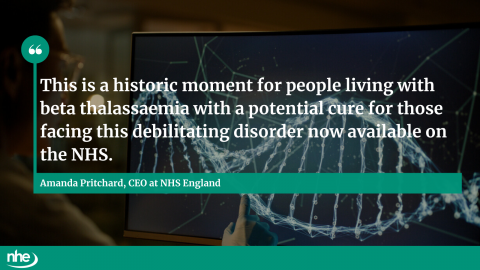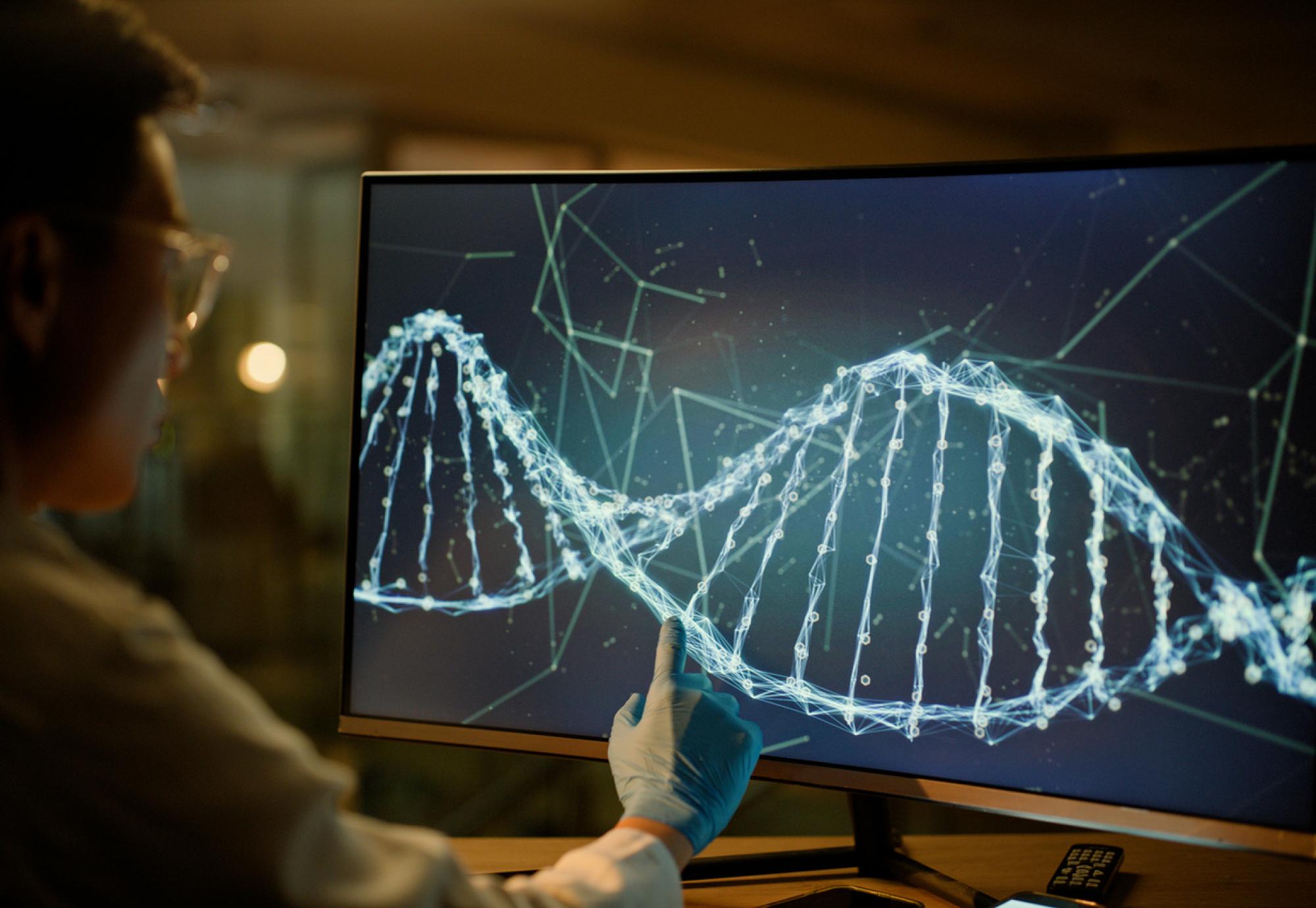Hundreds of NHS England (NHSE) patients are set to benefit from access to the first gene therapy in Europe for beta-thalassaemia after the National Institute for Health and Care Excellence (NICE) recommended exagamglogene autotemcel—otherwise known as Casgevy (or exa-cel), which is made by Vertex.
The treatment harnesses Nobel Prize-winning CRISPR technology—in fact, it is the first CRISPR-based gene therapy in the world. The treatment works by removing and editing the faulty gene in a patient’s bone marrow stem cells, so the body can produce functioning haemoglobin. Beta-thalassaemia is a genetic blood disorder which is characterised by a mutation that stops the body from producing healthy red blood cells and haemoglobin. And because the treatment involves editing people’s own cells, there is no risk of the body rejecting them.
“This is a historic moment for people living with beta thalassaemia with a potential cure for those facing this debilitating disorder now available on the NHS,” said NHSE’s CEO, Amanda Pritchard. “Ordinarily, patients experience painful side effects and undergo regular transfusions which severely impact their quality of life, but this therapy offers people a life free from that as well as the hope of living longer, which is truly amazing news.”
The treatment has been specifically recommended for those 12 and over with severe beta-thalassaemia who need regular blood transfusions, and when a blood and bone marrow transplant is suitable but no donor is available. In the past, the only curative treatment for beta-thalassaemia has been a stem cell transplant, but donors are hard to find and there is a risk the body rejects the transplant.
NICE’s medicines evaluation director, Helen Knight, said: “Although there are some uncertainties in the evidence for its long-term benefits, the committee felt exa-cel could represent a potential cure for some people with transfusion-dependent beta-thalassaemia, freeing them from the burden and risks of needing regular blood transfusions.”

The treatment will be available to patients in the next few weeks, as it enters NHSE’s Innovative Medicines Fund so further evidence can be gathered over the next five years. International clinical trial data shows that, after receiving the treatment, the vast majority (93%) of patients did not need a blood transfusion for at least a year. Experts believe this could be a lifetime cure.
It is estimated that there are around 2,300 people in the UK with thalassaemia, with approximately 800 having the particularly severe form of the condition. In this country, it mainly impacts those of Pakistani, Indian, and Bangladeshi ethnic origin. NICE says that up to 460 people will be eligible for the treatment on roll-out.
“With NICE’s approval of gene therapy for transfusion dependent thalassaemia under the NHS managed access scheme, we stand on the brink of a revolutionary breakthrough,” said Romaine Maharaj, executive director at the UK Thalassaemia Society. “This transformative treatment offers patients a life-changing opportunity, enabling them to repair their own cells and embrace a future free from the challenges of their condition.”
Helen Knight added that the final draft guidance also supports NICE’s aim of reducing health inequalities associated with conditions like transfusion-dependent beta-thalassaemia. NHSE’s health inequalities director, Professor Bola Owolabi, said: “This is an incredibly exciting step forward in the treatment of thalassaemia and could drastically change the lives of those living with what can be an extremely painful condition.
“We are committed to reducing healthcare inequalities by rolling out new and pioneering treatments on the NHS for conditions, such as thalassaemia, which disproportionally affects people from some minority ethnic backgrounds.”
Casgevy is being manufactured in Edinburgh and has a per-treatment-course list price of £1.65m, although the NHS will benefit from a discounted price. The treatment received the green light from the Medicines and Healthcare products Regulatory Agency last year.
Image credit: iStock



















